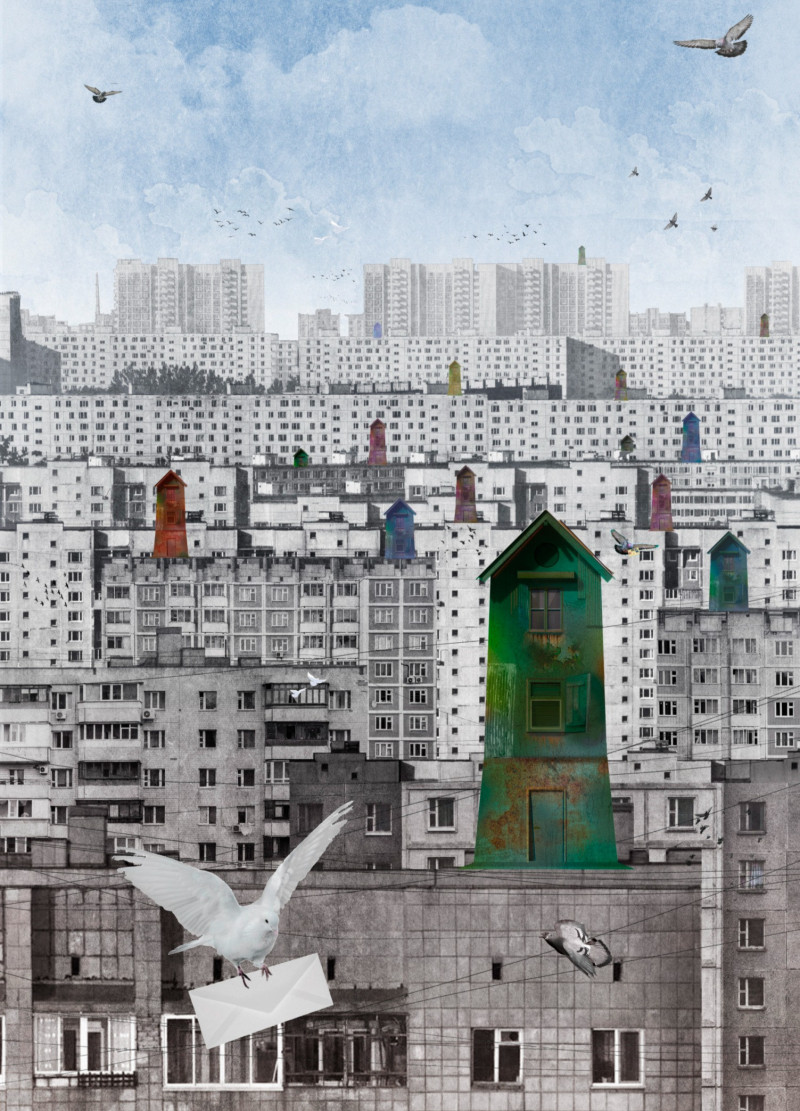5 key facts about this project
The Pigeon Post Home Office stands out as a response to the communication barriers faced in Russia, where social networks are not accessible. Set in a context that demands innovative solutions, it is designed to function as a space where alternative forms of interaction can thrive. The main idea is to create an environment that blends the need for focused work with opportunities for communication and collaboration, reflecting the current societal challenges.
Spatial Organization
The layout of the Pigeon Post Home Office is organized across three levels: the ground floor, first floor, and second floor. Each level has specific roles that support both individual tasks and group activities. This careful arrangement allows users to move freely between different modes of work, whether they need a quiet spot for concentration or a place to meet and discuss ideas.
Design Aesthetics
The design maintains a modern yet practical style that emphasizes clarity. Natural light is used effectively to brighten the interior spaces, creating a welcoming atmosphere. The arrangement of rooms promotes movement and interaction, aligning with the intention of encouraging users to connect with one another. Each area is designed to facilitate both solitude and teamwork, ensuring that the environment feels cohesive and supportive.
User Experience
A strong emphasis on user experience shapes how the spaces are configured. Areas are designed for casual encounters and spontaneous discussions, reflecting a belief that interactions can enhance productivity. This awareness of social dynamics creates a comfortable setting where users can collaborate easily. The layout not only accommodates various activities but also nurtures a sense of community among those who work within its walls.
Incorporated Details
While the presentation does not specify materials used in the design, the overall approach is grounded in simplicity and practicality. Features such as open areas, clear pathways, and visual connections enhance the functionality of the space. These design elements create a working environment that is easy to navigate and supportive of diverse user needs, making the Pigeon Post Home Office a distinguished model of adaptive architecture in challenging times.




















































